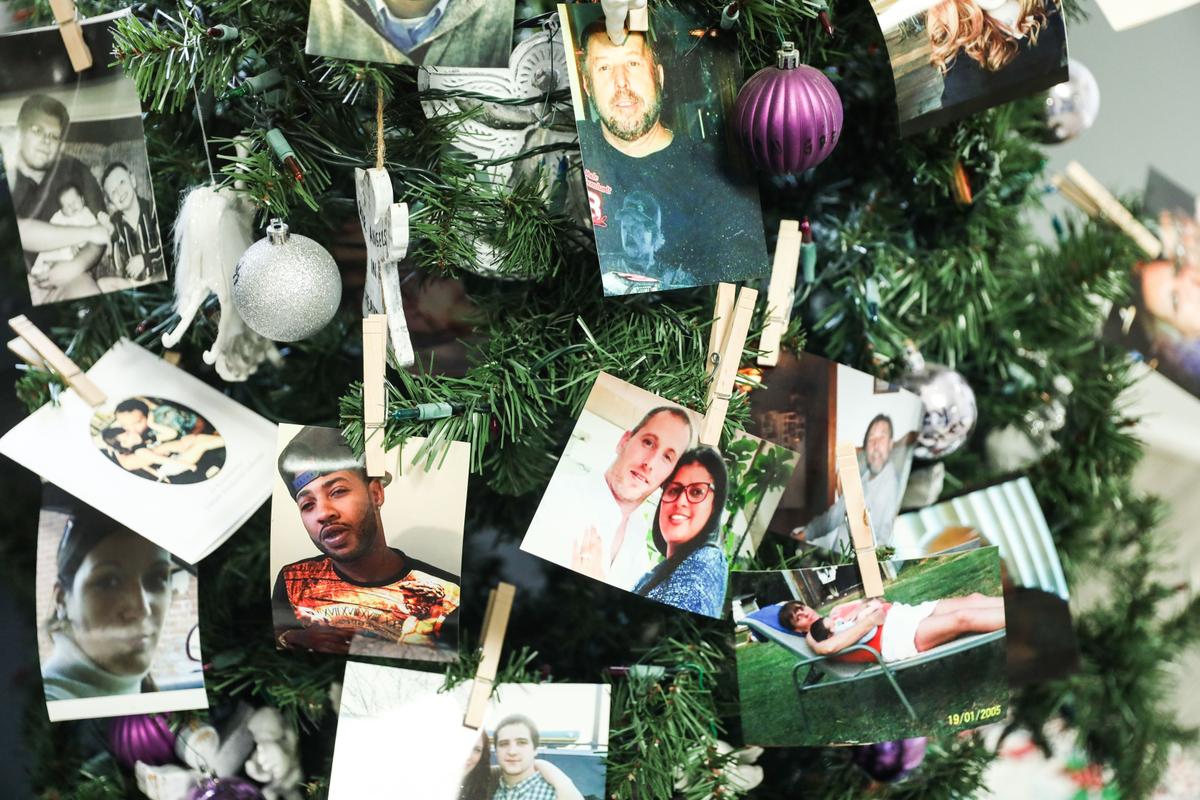RICHMOND, Va.—Jerry Barton lost everyone around him to opioids. First, he lost his sister. Then, his girlfriend. Later, he lost a close friend from suicide stemming from addiction. And, in February, he found his childhood best friend dead from an opioid overdose.
Before the pandemic and the lockdowns hit, Barton had been 21 months clean from drugs. But the isolation, stress, and lack of human connection took a toll on him.
“It was depressing,” Barton told The Epoch Times inside a recovery home provided by The McShin Foundation, a nonprofit recovery community organization in Virginia. “It bothered me a lot—it actually led to my relapse.”
There were no in-person groups for emotional support. Barton took part in some online meetings, but they had a lackluster atmosphere—he hid his true self. Being alone amid the lockdown, he thought he could get away with a one-time hit.
Photos of people who have died due to their opioid addiction, on a tree at The McShin Foundation, a nonprofit recovery community organization, in Richmond, Va., on May 12, 2021. Samira Bouaou/The Epoch Times





